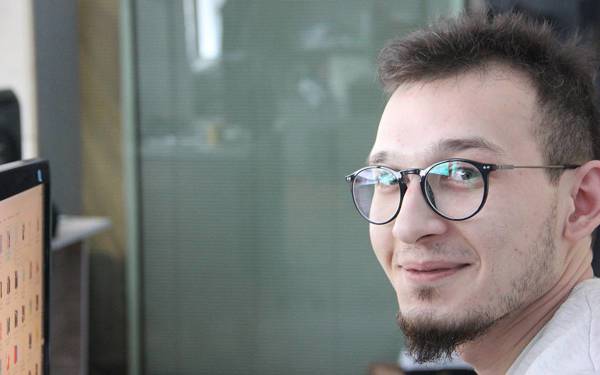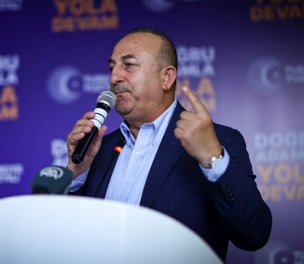Click to read the article in Turkish
Lawyer Gülden Sönmez spoke to bianet about the so-called 'voluntary' forced deportations and the violations refugees face in Repatriation Centers (RCs): "They sign the documents out of fear, pressure, and the psychological toll of being held in RCs. But we know their consent is not genuine," she said.
One of the prominent topics in the elections held on May 14th and May 28th was the refugee issue. While the opposition largely centered its election campaign on 'the return of Syrians,' the government claimed that 'forced returns would not take place, only returns based on consent.'
Following the government's victory in the elections, the deportations, which had already begun long before the elections, gained momentum. The formula for these deportations was to have a 'consent document' signed. However, the forced signing of 'return documents' has frequently been brought up.
So, are refugees genuinely returning voluntarily, and how are these 'voluntary' returns taking place? Who are the ones being sent back? Is it possible to object to a signed document?
Lawyer Gülden Sönmez discussed the so-called 'voluntary' forced deportations and the violations faced by refugees in Repatriation Centers (RCs) with bianet.
On July 26, 2023, Interior Minister Ali Yerlikaya announced on a television program that there are a total of 4,888,286 immigrants in Turkey. According to the Address-Based Population Registration System (ADNKS) results, the foreign population residing in Turkey was reported as 1,823,836 people. Of this population, 49.5% are males, and 50.5% are females. This number does not include foreigners who have obtained short-term visas for reasons such as courses, tourism, scientific research, and Syrian individuals with temporary protection status. |
Sönmez emphasized that claiming the document was signed 'based on consent' does not reflect the truth. She pointed out the conditions in the repatriation centers, stating, "We must say that the paper is signed unwillingly, by force, and it is an unlawful deportation process, but proving this is very difficult."
"The situation in Repatriation Centers is very poor; they stay in non-sterile environments. They face violence and mistreatment. Lawyers cannot be with them during the deportation process. They are forced to sign those papers. They tell us that they signed them out of compulsion," she said.
Here are Sönmez's responses to bianet's questions:
“When did the 'consent-based' forced deportations begin?
Forced deportations began about a year and a half ago, fluctuating intermittently but have significantly increased in the last two and a half to three months and continue to increase day by day.
Which nationalities are among those deported the most?
I cannot provide statistics on which nationality is deported the most because such details are not available. However, based on my observations, Syria, Afghanistan, and Turkmenistan are among the countries with the highest number of deportations.
Who are the ones being deported the most?
We don't have a chance to determine this precisely, but from what I have observed in the field, there are educated individuals with jobs, temporary refugee status people fleeing from war, as well as those who do not have jobs and rely on assistance. In other words, it doesn't matter whether they are educated or not; you can find people of all ages. For example, they took an 85-year-old person sitting in the park, and his family couldn't find him for days.
"Claims of suicide in RCs"
After the signing of the return document, can you, as lawyers, do anything?
We must say that the paper is signed unwillingly, by force, and it is an unlawful deportation process, but proving this is very difficult.
The conditions in Repatriation Centers are very poor; they stay in non-sterile environments. They face violence and mistreatment. Lawyers cannot be with them during the deportation process. They are forced to sign those papers. They tell us that they signed them out of compulsion. They sign them out of fear, pressure, or due to the unbearable psychological state of being held in a Repatriation Center. But we know their consent is not genuine.
Normally, when a deportation decision is made, we can file an objection and they cannot be deported for one and a half to two years until the court process is concluded. During this period, they cannot be held in administrative detention centers. In other words, they must continue to stay in Turkey until the court case is concluded. However, now, they can be deported despite an ongoing court case, so the process is somewhat like a form of intimidation.
"Parliament and TİHEK should initiate investigations"
Have you made any applications to relevant institutions regarding these issues?
I have applied to both judicial mechanisms and institutions like the Turkish Human Rights and Equality Institution (TİHEK). I also make written submissions to civil society organizations. I write to the human rights centers of bar associations as well. If my clients give their consent, I send the relevant applications.
However, I do not find the efforts of TİHEK, which has the responsibility to monitor and inspect these issues, and the Human Rights Committee of the Turkish Grand National Assembly to be sufficient in addressing these violations.
We hear about different problems as well; for example, my client was taken to a Repatriation Center, and during the transfer, I witnessed profanity and mistreatment. Apart from that, I have heard that my clients are held in inhumane and humiliating conditions. There are situations I have heard, but cannot confirm. For example, there are claims of suicide in Repatriation Centers.
"They are held in police stations for weeks"
You mentioned that forced deportations have increased in the last three months; what are the most common violations you encountered in this period?
Unlawfulness prevailed right from the beginning. The police stop someone they consider a foreigner on the street. They take them to the police station and keep them there indefinitely without notifying their family. The detention periods in police stations can last for months. Detaining people here, the whole process, is completely contrary to human rights and the law. You cannot keep someone for weeks or months, even if they have committed a crime.
Imagine that in Turkey, even if you have committed a crime, used violence, and have been caught in the act, there is a time limit for your detention in custody. But if you are a foreigner and have not committed any crimes, you can still be held for a very long time. It might sound like a joke, but people in Repatriation Centers and police stations face treatment that makes them wish they were guilty. They say, 'Accuse us of something; at least we can get out of here and go to prison for some relief.'
They are held for weeks with uncertainty. Then they are transferred to unknown places by buses, and their families cannot find them or reach them. They don't know where they have been taken. Moreover, they have turned it into a game, like trying to find a way in a labyrinth.
Were they taken to Tuzla RC? Did they stay in Tuzla? Were they sent from Tuzla? Oh, they were sent; where to, I wonder? It's like a strange puzzle of unknowns. Families cannot find out. No one can find out where they are, and if there is even a minor typo in their names or a mistake in the system, finding them becomes impossible.
Imagine a person could have been taken from Beylikdüzü RC to Tuzla RC, from Tuzla to Bolu RC, from Bolu to Erzurum RC, and from there to Van RC. Whether they will be accepted at each place is uncertain. We have to chase them from place to place, and sometimes when we go to where they were last taken, we find out that they have been deported.
We also encounter different problems; for example, your client was taken to Erzurum RC, but because the acceptance process was not initiated there, you cannot confirm that they are there. So, we are facing a horrific situation."
|
"You cannot even provide them their medication"
How many people are taken to Repatriation Centers in a single day, and what is the capacity of these centers?
We know that 6,000 people are brought to Tuzla in a single day. They collect six thousand people from Istanbul on a single day. There is no place to put them because it's a container facility. Due to overcrowding and uncertainty, people are forced to sign the deportation document.
We had lawyer meetings in these containers during the summer. As lawyers, we can't bear conducting a single meeting in a container, but people are kept there.
This means restricting their freedom. For example, those with chronic illnesses who use medication cannot get their medications. Even if they were criminals in prison, you could provide them with medication. But in Repatriation Centers, you cannot, as they do not allow it."
"The decision of the Constitutional Court can impact many cases"
Finally, the Constitutional Court recently ruled that forced deportations violate human rights. How will this decision affect the process, and will the injustices you mentioned continue?
The decision of the Constitutional Court can affect many cases. Especially in ongoing legal processes, judges will take this into account, and I believe they will consider it important.
Secondly, there are many applications that have already been made to the Constitutional Court, and there will be more. This decision will undoubtedly have a positive impact on all of them. Most importantly, this decision will encourage the migrants and refugees who have been subject to violations. They will say, 'Even if it takes a long time, we can finally obtain our rights and win.' It will encourage them to make applications more courageously."
(RT/PE)




.jpg)



.jpg)
